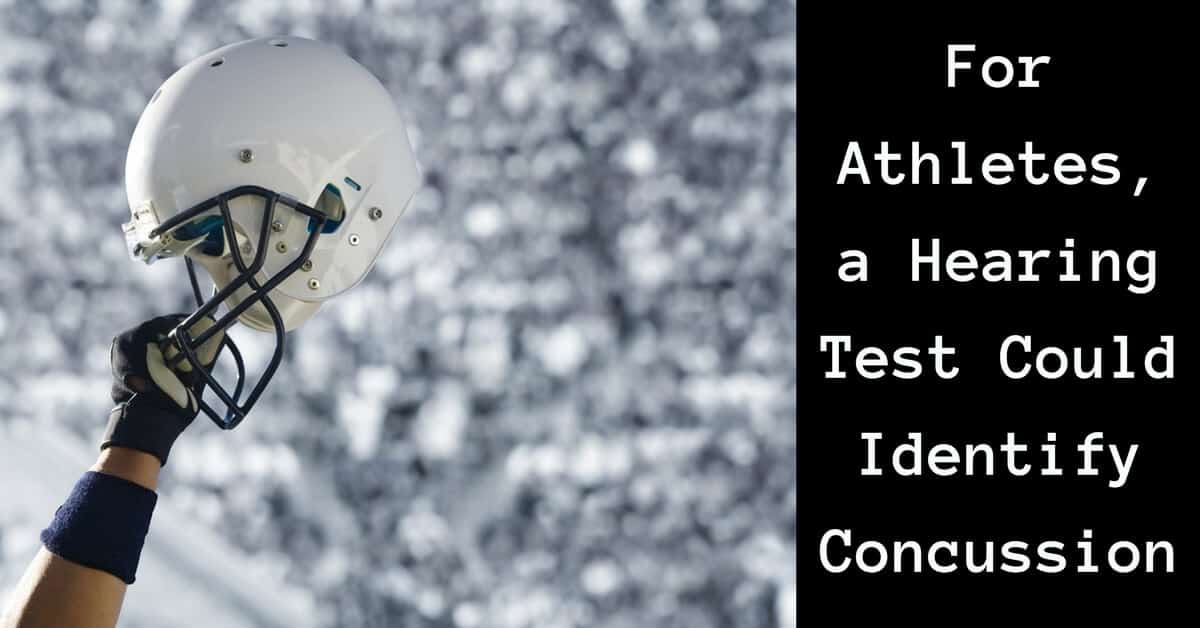Now that football season is officially underway, there is no doubt the conversation will soon turn to the harmful and long-term effects of concussions. Whether you’re an athlete yourself, you love someone who is an athlete, or if you were simply astounded by Will Smith’s 2015 movie titled “Concussion”, chances are you’ve worried about the condition. This worry is intensified when discussing concussions in child athletes, as their brains are still in developmental phases. To make matters worse, concussions are difficult to diagnose for anyone, and especially so for children.
These are just some of the reasons Northwestern University’s 2016 research findings regarding childhood concussions and hearing tests are so exciting. Researchers at the university were able to accurately identify children who had suffered concussion with 90% accuracy, and those who had not with 95% accuracy using a specific type of hearing assessment. This is a huge improvement from the subjective diagnostic measures that are currently common practice. Nina Kraus, the lead researcher on the study hopes to eventually use the technology directly on the field as an on-hand concussion kit.
About the study
The study used 40 child athletes aged 8-15, recruited from the Institute for Sports Medicine at Ann & Robert H. Lurie Children’s Hospital of Chicago. Study participants included a group who had suffered a recent concussion and a control group with no concussion history. During the study, three sensors were attached to the scalp which measured electrical signals that are evoked by the brain when listening to speech.
The results were fascinating. The findings showed that the brains of the concussed children registered slower and smaller responses to the pitch of a speaker’s voice than their healthy counterparts. The neural signature of the concussed participants was so distinct that it was able to determine concussed children with 90% accuracy and those without concussion with 95% accuracy.
Nina Kraus explains why auditory assessments were able to deliver such accurate diagnostic results. Regarding auditory processing she states, “it is the most precise, most complicated computational work the brain has to do. So, it’s not surprising that auditory processing can be used as a measure of brain health… Sometimes the power of sound is understated.”
Study participants who had actually suffered concussion were re-evaluated an average of 27 days later. They showed reduced symptoms typically associated with concussion (not including the hearing assessment), as well as a 30% increase in the response time on the auditory assessments.
What exactly are concussions?
A concussion is defined by the Center for Disease Control as a “type of traumatic brain injury—or TBI—caused by a bump, blow, or jolt to the head or by a hit to the body that causes the head and brain to move rapidly back and forth.” The sudden movement causes the brain to literally bounce around or twist in the skull, thus changing the chemical makeup of the brain, as well as straining or damaging actual brain cells. Watch this video for an interesting visualization and brief explanation of a concussion with a specific emphasis on youth concussion.
Why is detection important?
Concussion detection is important because a concussed brain needs adequate rest time to properly recover from the injury. Contrary to popular belief, one must not need to be knocked unconscious to experience concussion – and many times a concussed person will not even know they have suffered the injury. If a concussion is not detected, chances are an athlete will continue training and their brain will not have proper recovery time. It is also important because when an athlete or other concussed individual does not give their brain time to rest, it can lead to prolonged or worsened post-concussion symptoms, as well as making the person more susceptible to repeat injury.
Imagine if the type of auditory processing assessments used by Dr. Kraus and her team became a mainstream reality for child and professional athletes alike. Imagine how many lives could be changed and how many brains could be protected if the guess-work was literally taken out of concussion diagnosis. Bringing this technology to the court, field, or pool are all part of Dr. Kraus’ game plan, and we certainly hope she succeeds.
For more information, and to schedule a hearing test, contact us at Hearing Wellness Solutions.

